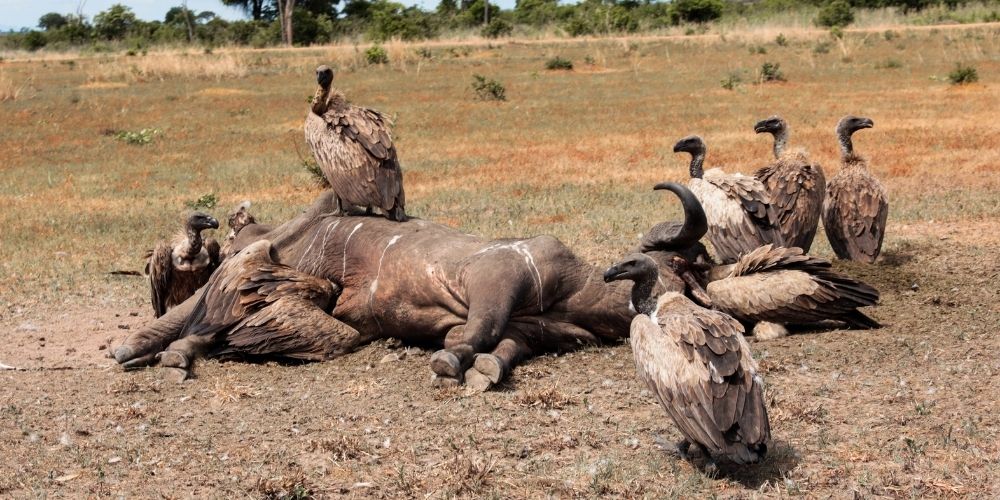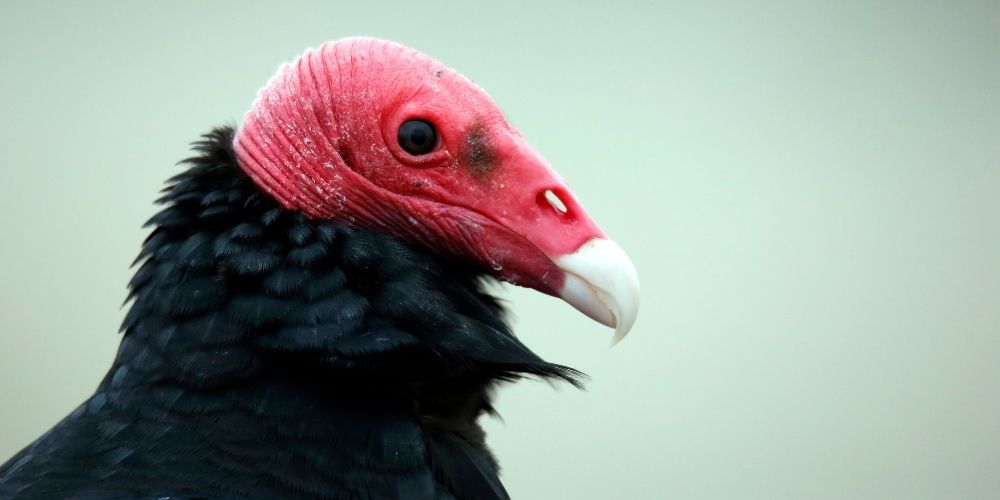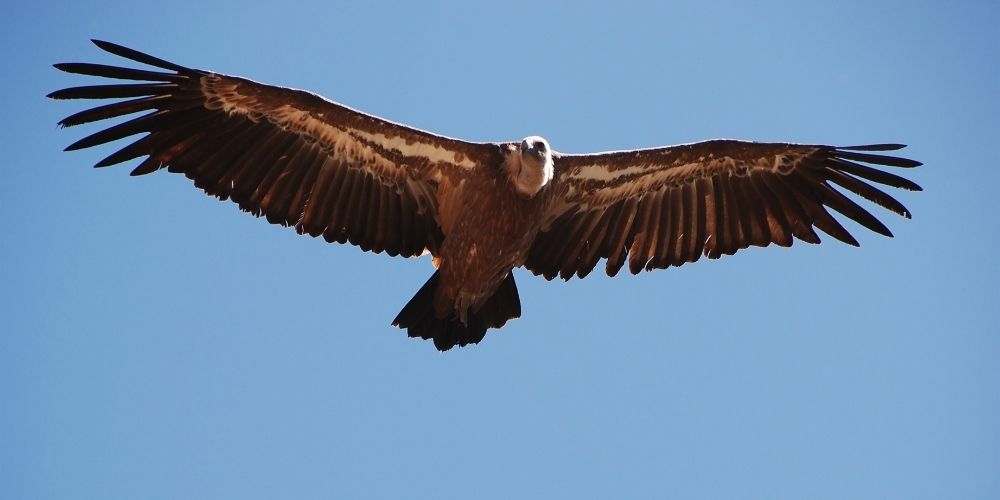It is generally not recommended to eat vultures as they are scavengers that consume dead animals. The meat of vultures may contain harmful bacteria and toxins from the animals they feed on, which could pose a health risk to humans who consume it. Additionally, vultures are protected species in many countries, and it may be illegal to hunt or consume them. Consuming vultures could also have negative ecological impacts as they play a crucial role in the ecosystem by consuming carrion and helping to prevent the spread of diseases. Therefore, it is best to avoid eating vultures and opt for safer and more sustainable food sources.
Contents
- Is Vulture Meat Edible?
- Do Any Cultures Eat Vultures?
- 5 Diseases That Vultures Carry
- Can A Human Eat Vulture Meat?
- Can Humans Eat Vulture Eggs?
- Is Eating Vulture Legal?
- Which Country Eats Vultures?
- What Happens If You Eat A Vulture?
- Is Vulture Meat Poisonous?
- Can You Get Sick From Eating Vultures?
- What Does Vulture Meat Taste Like?
- Can You Eat Turkey Vulture Meat?
- Are Vultures Dangerous To Humans?
- Who Eats Vulture In Food Chain?
- What Does A Vulture Eat?
- Can Vultures Eat Cooked Meat?
- Can Vultures Eat Other Birds?
- How Much Weight Can A Vulture Carry?
- Summary
Is Vulture Meat Edible?
Vulture meat may be edible, but it is not recommended for human consumption due to the potential health risks and ecological implications. Vultures are scavengers that feed on carrion, which may contain harmful bacteria, viruses, and toxins. Moreover, vultures are protected species in
many countries, and hunting or consuming them may be illegal. Eating vultures could also have negative ecological impacts as they play a crucial role in the ecosystem by consuming carrion and helping to prevent the spread of diseases. Therefore, it is best to avoid eating vultures and choose safer and more sustainable food sources.
Do Any Cultures Eat Vultures?
Yes, some cultures have traditionally consumed vultures as food. Here are a few examples:
- Parsi community in India: The Parsi community in India has traditionally consumed vulture meat as part of their religious practice. They use vultures to dispose of their dead in the Towers of Silence, and then consume the meat as a way to honor the deceased.
- Maasai people in Africa: The Maasai people in Africa have been known to consume vultures, as well as other wildlife, as part of their diet.
- Samburu people in Kenya: The Samburu people in Kenya have also been known to consume vultures as a food source.

5 Diseases That Vultures Carry
Vultures are known to carry a variety of diseases, some of which can be harmful to humans. Here are some examples:
- Anthrax: Vultures are known to be carriers of anthrax, a bacterial infection that can cause fever, skin lesions, and even death in some cases.
- Botulism: Vultures can also carry botulism, a serious illness caused by a toxin produced by the bacterium Clostridium botulinum. Symptoms of botulism can include muscle weakness, difficulty breathing, and even paralysis.
- Salmonella: Vultures can carry Salmonella bacteria, which can cause food poisoning in humans. Symptoms of Salmonella infection can include diarrhea, fever, and abdominal cramps.
- Newcastle disease: Vultures can also carry Newcastle disease, a viral infection that affects birds and can cause respiratory problems and other symptoms in humans.
- Avian influenza: Vultures can also carry avian influenza, a viral infection that can cause respiratory problems and other symptoms in humans. Some strains of avian influenza can be highly contagious and potentially deadly.
It is important to note that while vultures can carry these diseases, the risk of transmission to humans is generally low. However, it is still recommended to avoid contact with vultures and to not consume their meat or eggs, as a precautionary measure.

Can A Human Eat Vulture Meat?
It is not recommended for humans to eat vulture meat because vultures are scavengers that feed on carrion, which could contain harmful bacteria and toxins. In addition, vultures are protected species in many countries, and hunting or consuming them may be illegal. It is best to avoid eating vulture meat and choose safer and healthier food sources.
"Vultures can carry harmful bacteria and viruses, including anthrax and botulism, which could pose a risk to humans who consume them or come into contact with them." - The Wildlife Conservation Society.Can Humans Eat Vulture Eggs?
Vulture eggs are not commonly consumed by humans, and it is generally not recommended to eat them as they are protected species in many countries. Moreover, vultures, like other birds, may contain harmful bacteria, including salmonella, which can cause food poisoning. Therefore, it is not advisable to eat vulture eggs.
Is Eating Vulture Legal?
In many countries, vultures are protected species, and it may be illegal to hunt or consume them. For example, in the United States, all species of vultures are protected under the Migratory Bird Treaty Act, and hunting or killing them is illegal. It is essential to check the local laws and regulations before consuming vultures or their products.
Which Country Eats Vultures?
Vultures are consumed as food in certain cultures in India, Pakistan, and Nepal because they are believed to have medicinal properties. In Pakistan and Afghanistan, they are sometimes eaten the day after a wedding celebration.
There are some reports of vulture consumption in some parts of Africa, Asia, and the Middle East. However, vultures are not commonly consumed globally, and in many countries, they are protected species. Eating vultures may have ecological and health risks and is generally not recommended.
What Happens If You Eat A Vulture?
Eating vultures may expose humans to harmful bacteria, viruses, and toxins from the carrion the birds consume. Consuming vulture meat may increase the risk of food poisoning and other health problems. Eating vultures may also have ecological implications as the birds play an important role in the ecosystem by consuming carrion and preventing the spread of diseases.
Is Vulture Meat Poisonous?
Vulture meat is not necessarily poisonous, but it may contain harmful bacteria and toxins from the animals the birds feed on. Vultures are scavengers that consume dead animals, which could harbor dangerous pathogens and chemicals. Eating vulture meat may increase the risk of food poisoning and other health problems. Therefore, it is best to avoid consuming vultures.
Can You Get Sick From Eating Vultures?
Vultures are scavengers that feed on carrion, and their meat may contain harmful bacteria, viruses, and toxins that can cause food poisoning in humans. Eating vulture meat can also increase the risk of contracting diseases such as anthrax and botulism, which can be life-threatening. Therefore, it is not advisable to eat vultures.

What Does Vulture Meat Taste Like?
It is not common to eat vulture meat, and there is limited information on its taste. Some reports suggest that vulture meat has a strong, gamey flavor and a tough texture. However, consuming vultures is not advisable due to the potential health risks and ecological implications.
Can You Eat Turkey Vulture Meat?
Turkey vultures are protected species in the United States, and it is illegal to hunt, kill or consume them. Even if turkey vulture meat were legal to consume, it may contain harmful bacteria, viruses, and toxins from the carrion the birds feed on. Therefore, it is not advisable to eat turkey vulture meat or any other vulture species.
Are Vultures Dangerous To Humans?
Vultures are not generally considered dangerous to humans, as they are not aggressive and do not pose a direct threat. However, vultures can carry harmful bacteria and viruses from the carrion they consume, which could pose a risk to humans who come into contact with them or their droppings. Additionally, some vulture species have sharp beaks and talons, which could cause injury if they feel threatened.
Who Eats Vulture In Food Chain?
Do Any Animals Eat Vultures? As scavengers, vultures play an important role in the food chain by consuming carrion and preventing the spread of diseases. However, they are not typically preyed upon by other animals, as their large size and powerful beaks make them difficult to subdue.
In rare cases, vultures may be preyed upon by larger predators such as lions, hyenas, or crocodiles, but this is not common. Generally, vultures are at the top of the food chain as scavengers, and their role in the ecosystem is critical for maintaining a healthy balance of nutrients and preventing the spread of disease.
Vultures are large birds and are not typically preyed upon by other animals. However, some predators may target vulture eggs or chicks, such as snakes and other birds of prey. Some scavengers may also compete with vultures for carrion, including hyenas, jackals, and wild dogs.
What Does A Vulture Eat?
Vultures are scavengers that feed on carrion, including dead animals and carcasses. Vultures play a crucial role in the ecosystem by consuming carrion and helping to prevent the spread of diseases. Different species of vultures may have different feeding habits and preferences, but they primarily consume dead animals and carcasses.
Do Vultures Eat Other Vultures? Vultures do not typically eat other vultures. While vultures may be territorial and may compete for food or resources, they are not known to prey on each other. Vultures are primarily scavengers that feed on carrion, and their digestive systems are specialized to break down and process this type of food.
Can Vultures Eat Cooked Meat?
Vultures are primarily scavengers that feed on carrion, including dead animals and carcasses. While vultures can eat cooked meat, it is not their preferred food source as they are adapted to consuming fresh carrion. However, consuming cooked meat does not eliminate the risks associated with eating vultures, including potential health risks and legal restrictions.
Can Vultures Eat Other Birds?
Vultures are primarily scavengers that feed on carrion, including dead animals and carcasses. While vultures may occasionally eat other birds, such as pigeons or other small birds, it is not their primary food source. Vultures are adapted to consuming large, dead animals, and their digestive systems are specialized to break down carrion.
How Much Weight Can A Vulture Carry?
Vultures are large birds and can carry a significant amount of weight. The amount of weight that a vulture can carry varies depending on the species, but some species can carry up to 20 pounds or more. Vultures are adapted to carrying large pieces of carrion, and their strong wings and talons allow them to lift and transport heavy loads.
Summary
In conclusion, while vulture meat and eggs may be consumed in some regions, it is generally not recommended due to the potential health risks, ecological implications, and legal restrictions. It is best to choose safer and healthier food sources that are not associated with these risks.
